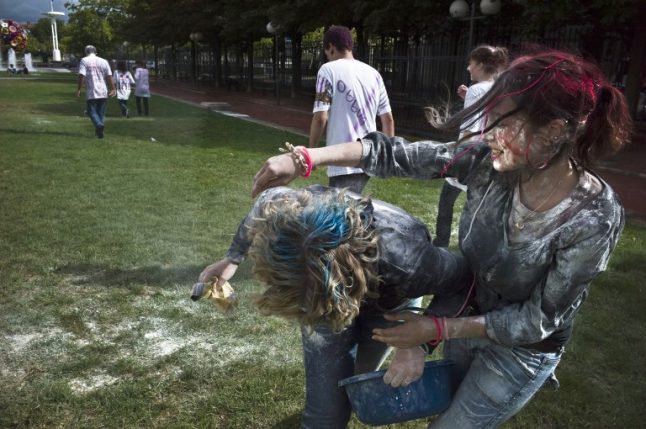Hazing ceremonies, known as bizutage in French, have been illegal in France since 1998, but frequent reports over recent months suggest the practice is still alive on many campuses.
It is common for students to keep quiet about the hazing they receive for fear of reprisals.
In this case, the male student went to the authorities at the Paris-Dauphine university after attending a recruitment session for new members of the Japad youth association.
The Paris-Dauphine university sits in the well-heeled western 16th arrondissement of Paris, close to the Bois de Boulogne park. Its alumni includes former European Commission president Jacques Delors and business leader Arnaud Lagardère.
The president of the university, Laurent Batsch, has brought the action, telling AFP that “one of the members, under the influence of alcohol and with the aid of what seems to be a bottle top, engraved the letters J-A-P-A-D on the boy’s back.”
“They’re not open wounds nor very deep cuts, but letters in blood,” he said.
The association has been disbarred from the university and its offices closed.
A disciplinary process will be held to question “the leaders of the association, the people present during this grievous incident and the person or people responsible,” said Batsch.
A report in September from the anti-hazing organization CNCB (Comité national contra le bizutage) said the practice was still common.
“Girls are the main victims of hazing,” said the organization’s president, Marie-France Henry. “The sexual humiliations are more violent than for boys and simulated acts of forced fellatio are frequent.”
Interviewed by newspaper 20 Minutes, she hoped this recent incident would encourage more students to refuse to get involved.
“This is the first time we’ve heard about hazing of such barbarity,” she said. “I can imagine that the young man must have protested while the association’s members engraved these letters on his back.”
“I hope this affair at Paris-Dauphine will create an electric shock and that association members understand that they risk being expelled for acts like this. Students must learn to say no to hazing. The more that do it, the less we will see these types of acts.”
In October a freephone number was set up in all higher education establishments for students to call with reports of hazing.
Higher education minister Laurent Wauquiez responded to the incident on Sunday, by calling for “the greatest firmness when dealing with serious incidents.”





 Please whitelist us to continue reading.
Please whitelist us to continue reading.
Member comments